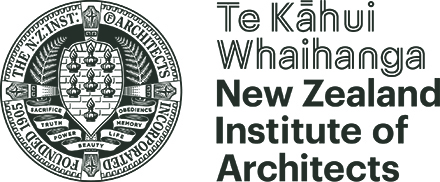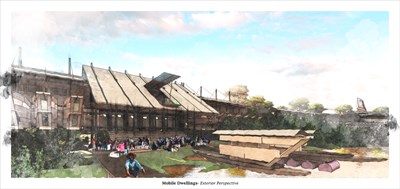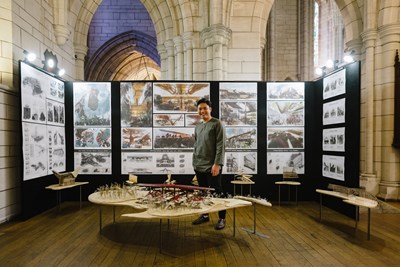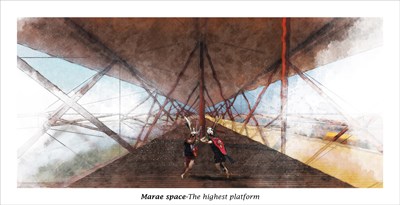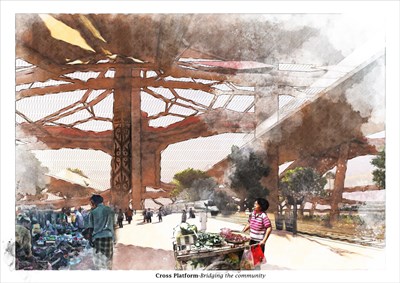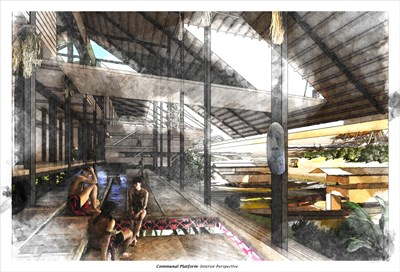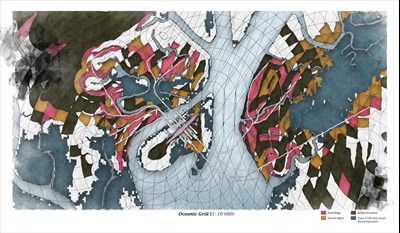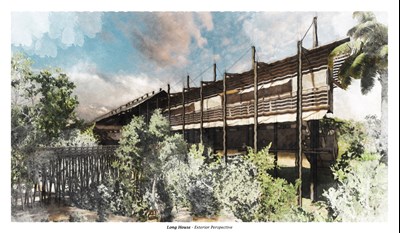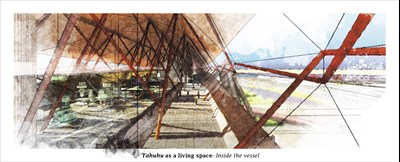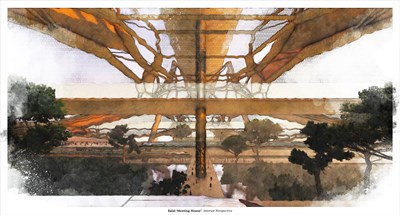Izzat Ramli of Te Whare Wānanga o Tāmaki Makaurau The University of Auckland, School of Architecture and Planning, was highly commended at the 2020 Te Kāhui Whaihanga Resene Student Design Awards for his project 'Continuum: Reimagining the Future of an Arguably Broken Oceania'.
Project description
The narrative of this project aims to reconstruct Oceanic ancestral wisdom that was spread through sea voyage but weakened or lost after western colonisation. In this thesis, the connectivity between the peoples of Oceania is expressed through etymology, and spatial and structural configurations of boats and architecture.
'Voyage' will be discussed as a reflection on the process of the Oceanic indigenous technical culture that has developed, transformed and hybridised for thousands of years to meet new problems and demand (such as climate change). Continuum aims to spark the transfer of knowledge from Oceanic ancestors to the 21st-century generation.
A plan to relocate Indonesia’s capital city is used as a temporal framework of this narrative. Indonesia, which is part of wider Oceania, plans to relocate its current capital city, Jakarta, from Java Island to Borneo Island. The city is expected to sink by 2050 due to flooding caused by polluted rivers and an abundance of concrete and mortar that block the flow of water back to the earth.
This speculative project challenges conventional modes of living and proposes a new way based on Oceanic regional and local identity and indigenous solutions.
Judges' citation
The ocean is not a barrier but a bridge in this project, which links otherwise disparate themes of etymology, architectural traditions and oceanic voyaging into a cohesive narrative. Particularly compelling was the demonstration of the natural evolution and divergence of language, culture and design and the application of this into new forms, which exist as a continuation of this evolutionary process. Izzat’s project makes a clear case for the idea of transience and impermeability as a response to climate change and sea level rise. We were struck by his beautiful watercolour sketches, which documented the project's origin story, and their influence can be seen in the final design outcome.
